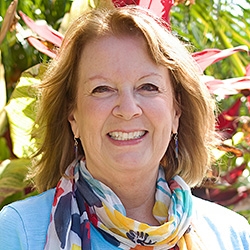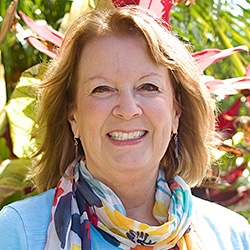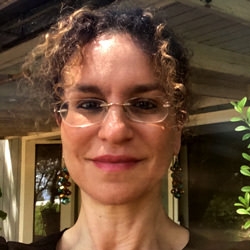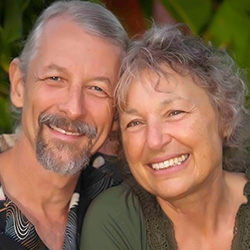
Search Results: power
-
Trainer Tip: "Power over" refers to using power, coercion, fear or authority to force change. It rarely brings lasting change. "Power with" refers to power that seeks to meet everyone’s needs. A "power with" system values input and needs of everyone who will be affected by decisions. When you notice you're using a power over paradigm to get results, shift focus to power with. Notice how this shift in consciousness affects results.
-
Some people in the NVC community consider the words "privilege" and "power" triggering and/or evaluative. From this perspective, how can the concepts of "privilege" and "power" be considered part of the NVC teaching? This writing piece examines the power and privilege debate. It also discusses what the author sees as Marshall Rosenberg and Gandhi's stance on the subject...
-
Living Compassion, for Robert, represents the spirituality that resides in every aspect of Nonviolent Communication. Its foundational principles are represented by three primary qualities or states of being: clarity, compassion and empowerment.
In this course you’ll explore – and practice – how the unfolding of inner clarity opens your way to compassion, which further unfolds into empowerment. Throughout this unfolding process, Robert will include maps and tips for shifting your everyday life from one that is relatively limiting to a life that is both transformative, healing and liberating.
-
In a "power with" consciousness you're aware of, and responsible for, your needs and values while considering and hearing others needs. Whereas regarding someone with earned authority, you trust her capacity and discernment is based on her experience and expertise. Read on for signs of when you are slipping into power under, power over, or power with, and how that fits with earned authority.
-
Here's an inspiring story of one citizen (the author) who faced a police officer and judge in court to contest a transit ticket... and inspired structural changes in the way one aspect of New York City transit operates. She inspires change with her application of empathy for self and others, acknowledgement, connecting requests -- and an inspiring vision of understanding, shared reality and living in a city where people have some trust in one another's intentions.
-
Would you like to learn how to:
- Use line and color to deeply connect with the feelings and needs that are alive for you ?
- Find a way forward that comes from your creative self ?
- Meet your creative self, even if you have never had the pleasure of meeting it before ?
Come join Olga Nguyen for Neuroart / Visual NVC– even if you have never drawn or painted before, and even if you are a professional in the midst of a creative block!
-
-
-
In pandemic many are asked to stay home. If we are experiencing violence at home we're also most at risk of harm or death if we leave. There are also less visible pieces at work. In this situation, acknowledging our pain, needs and experience can lighten the internal load to meet what is real, and claim our truth. We can do the same for our kids. This can open more pathways forward, and provide strength to leave when its more viable.
-
Trainer Tip: Today, when you tell yourself that you "have to" or "should" do something, notice what you feel and experience - is it a sense of duty, obligation, guilt, shame, overwhelm, constriction, heaviness? Then consider the underlying needs you are trying to meet with the activity. This can shift the purpose and intention with an energy that motivates our actions can bring empowerment and joy to our lives.
-
Total inclusion is impossible: inclusion of all can often lead to exclusion of those who can't bear the behaviors of some. Many groups flounder and disintegrate because of too much inclusion. Limited resources and capacities may make it necessary to exclude. Keeping more coherent shared values and strategies may be another reason to place membership conditions so that what appears to be exclusion may give movements a chance to expand.
-
-
Join Aya Caspi, a Certified NVC Trainer, as she delves into the difficult topic of parenting, childhood trauma, and social status. She discusses the generational impact of being labeled by society as "less than" or subservient. The wounds of childhood trauma can be healed so they no longer are a means of control by a dominant culture.
-
Use this worksheet to check to see if you’re making a request, rather than a demand. Clarify and connect your request to your needs. Check your motivations. Use a phrase, question, or empathy guess to connect to the person if they say “no”. See sample requests for actions, offers, and for deepening understanding.
-
- Understand the dynamics of power struggles
- Explore practical strategies for navigating power imbalances
- Discover ways you can share power in various relationships
- Explore how NVC supports a move away from domination, into shared power
-
When avoidance coping or positive thinking sidesteps challenges, internal and external injustice and unrest also rises as we sidestep our values and integrity. It leaves us in sadness and distress. What's unacknowledged impacts ourselves and others undesirably. To live nonviolently we need to be in touch with what's real. With resonance we can more likely be with what's true, and trust our resilience and inner alignment.
-
The existing unequal risks and impacts people of certain race, class and identities face in society is magnified in these strenuous times -- especially with things such as illness, financial well being, discrimination, attacks, and death. As responsive NVC practitioners we can stand in solidarity with those who are differentially impacted. Read on for this, and additional ways to spot common pitfalls of doing so.
-
In this telecourse recording, expert trainer Miki Kashtan will help you uncover what prevents you from making requests for everything you want without fear. The class includes daily practices for requests skill building.
-
Jim and Jori discuss sharing power through exploring our experience of having and not having power, how we make choices about our power and examining our relationship to power itself.
-
Based on your observations of "power with" interactions choose a specific, do-able to practice so that you're prepared the next time you're in a power under/power over dynamic. Keep the practice simple to do in a difficult moment. Then reflect: identify what you did (internally or externally) or said that (de)escalated the dynamic. This practice requires noticing what went well, self compassion, perseverance, and support.


















